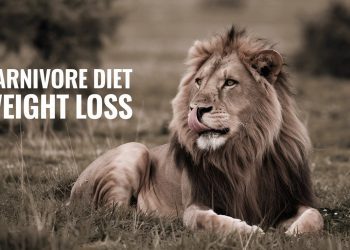Hey there, fellow health enthusiasts! If you’re curious about the carnivore diet overview, you’re in the right place! This dietary approach has been making waves in the wellness community lately, with people raving about its potential benefits. But what exactly is this diet all about? Let’s dive in and explore the basics!
What is the Carnivore Diet?
The carnivore diet is a dietary approach that focuses solely on animal-based foods. That’s right—no fruits, veggies, grains, or legumes—just meat, fish, eggs, and some dairy products. It’s a pretty radical shift from the typical balanced diet we’re all used to.
Historical Context and Rise in Popularity
Interestingly, the concept of the carnivore diet isn’t entirely new. Some indigenous cultures have been following meat-based diets for centuries, such as the Inuit people of the Arctic regions. However, the modern carnivore diet gained significant traction in the 2010s, with proponents claiming it can provide a range of health benefits, from weight loss to improved mental clarity.
The Carnivore Diet Philosophy
At its core, the carnivore diet is based on the idea that our ancestors thrived on animal foods and that our bodies are better adapted to processing meat than plant-based foods. Followers believe that by eliminating carbohydrates and focusing on nutrient-dense animal products, they can optimize their health and well-being.

Key Principles of the Carnivore Diet:
- Exclusivity: Only animal-based foods are consumed.
- Zero Carbs: The diet eliminates carbohydrates entirely.
- Nutrient Density: Emphasis on high-quality meats and organ products.
Now, I know what you might be thinking: “Isn’t that a bit extreme?” And you’re not wrong—the carnivore diet is a significant departure from the balanced, plant-forward diets we’re often told to follow.
| Aspect | Carnivore Diet | Traditional Diet |
| Food Sources | Meat, fish, eggs | Fruits, vegetables, grains |
| Carbohydrate Content | Zero | Varies (usually moderate) |
| Nutrient Focus | High protein and fat | Balanced macronutrients |
But as with any dietary approach, it’s essential to keep an open mind and consider the potential benefits and drawbacks.
In the following sections, we’ll dive deeper into the core principles of the carnivore diet, explore its potential benefits and risks, and discuss the current scientific evidence surrounding this controversial way of eating. Stay tuned for a comprehensive overview of the carnivore diet!
Core Principles of the Carnivore Diet Overview
The carnivore diet is a unique and highly restrictive dietary approach that focuses exclusively on animal-based foods. In this section, we’ll explore the core principles of the carnivore diet, including what you can eat, what you need to avoid, its macronutrient profile, and how it compares to other popular diets.
Exclusivity of Animal-Based Foods
One of the defining characteristics of the carnivore diet is its exclusivity. Here’s a breakdown of what’s allowed and what’s not:
Allowed Foods:
- Meat: Beef, pork, lamb, and poultry.
- Fish: Salmon, trout, and other seafood.
- Eggs: A staple for many following this diet.
- Limited Dairy: Some followers include low-lactose options like butter and hard cheeses.
Excluded Foods:
- Fruits: All types are off-limits.
- Vegetables: No leafy greens or root vegetables.
- Grains: This includes bread, rice, and pasta.
- Legumes: Beans and lentils are excluded.
- Nuts and Seeds: All varieties are avoided.
This strict adherence to animal products means that the carnivore diet is often referred to as a zero-carb or near-zero-carb diet.
Zero-Carb Nature
Unlike other low-carb diets like ketogenic or paleo diets, which allow for some carbohydrate intake from sources like vegetables and nuts, the carnivore diet aims for zero carbohydrates. This can lead to a significant shift in how your body processes energy, primarily relying on fats and proteins.
Comparison with Other Diets
Here’s a quick comparison of the carnivore diet with other popular dietary approaches:
| Diet Type | Carbohydrate Intake | Allowed Foods | Focus |
| Carnivore | Zero | Meat, fish, eggs, limited dairy | Exclusively animal-based |
| Ketogenic | Low (10-20%) | Meat, fish, low-carb vegetables | High fat, moderate protein |
| Paleo | Moderate | Meat, fish, fruits, vegetables | Ancestral eating pattern |
Nutritional Composition
The nutritional profile of the carnivore diet is quite distinct due to its focus on animal products:
Macronutrient Profile:
- High in Protein: The diet provides ample protein from various meats and eggs.
- High in Fats: Depending on the cuts of meat consumed, fat intake can be substantial.
- Virtually No Carbohydrates: With no plant foods included, carbohydrate intake is nearly nonexistent.
Importance of High-Quality Animal Proteins and Fats
The focus on high-quality animal proteins is crucial for meeting daily nutritional needs. Animal products are rich in essential nutrients such as:
- Iron
- Zinc
- Vitamin B12
- Omega-3 Fatty Acids
Role of Organ Meats in Nutrient Density
Organ meats like liver are often highlighted for their incredible nutrient density. They provide a concentrated source of vitamins and minerals that can help mitigate some deficiencies that may arise from an otherwise restrictive diet.
Cooking Methods and Preparation Techniques
When it comes to preparing meals on the carnivore diet, simplicity is key. Here are some common cooking methods:
- Grilling or Roasting: Perfect for meats like steaks or chicken.
- Searing: A quick method for cooking fish or pork chops.
- Slow Cooking: Ideal for tougher cuts of meat that benefit from longer cooking times.
Seasoning is typically limited to salt and pepper or other spices that don’t contain plant-based ingredients.
Potential Benefits and Risks of the Carnivore Diet Overview
The carnivore diet has garnered a lot of attention for its bold claims and unique approach to eating. While many followers report various health improvements, it’s essential to look at both the potential benefits and the risks associated with this restrictive diet.
In this section, we’ll explore anecdotal evidence of health improvements, specific claims regarding health issues, and the nutritional deficiencies and risks that may arise from long-term adherence to the carnivore diet.
Anecdotal Evidence of Health Improvements
Many individuals who follow the carnivore diet report a range of health benefits. Here are some of the most commonly cited improvements:
- Weight Loss: Many people experience significant weight loss when switching to a carnivore diet. The elimination of carbohydrates often leads to reduced calorie intake and can help kickstart fat loss.
- Enhanced Energy Levels: Followers often claim increased energy levels, which they attribute to a stable blood sugar level resulting from the absence of carbs.
- Improved Digestive and Mental Health: Some individuals report better digestion and mental clarity after adopting the diet. This is often linked to the simplicity of the food choices and a reduction in digestive issues associated with plant-based foods.
Claims Regarding Specific Health Issues
In addition to general health improvements, proponents of the carnivore diet make specific claims about its effectiveness for various health conditions:
- Diabetes Management: Some followers report reduced body mass index (BMI) and improved blood sugar levels. The elimination of carbohydrates is believed to stabilize insulin levels, which can be beneficial for those managing diabetes.
- Relief from Chronic Conditions: There are anecdotal claims that the carnivore diet can help alleviate symptoms related to chronic conditions such as arthritis and gut issues. Many followers believe that eliminating plant foods reduces inflammation and improves overall well-being.
Risks and Downsides
While there are potential benefits, it’s crucial to consider the risks associated with long-term adherence to the carnivore diet:
Nutritional Deficiencies
One of the most significant concerns with the carnivore diet is the potential for nutritional deficiencies due to its restrictive nature:
- Lack of Essential Vitamins: Key vitamins such as vitamin C and folate are predominantly found in plant foods. The absence of these nutrients can lead to deficiencies over time.
- Absence of Dietary Fiber: Since fiber is only found in plant foods, following a carnivore diet means zero fiber intake. This can negatively impact gut health, leading to issues like constipation and an imbalance in gut bacteria.
Health Concerns Associated with High Saturated Fat Intake
The high saturated fat content of a carnivore diet raises concerns about heart health:
- Increased LDL Cholesterol Levels: Consuming large amounts of saturated fat can lead to elevated low-density lipoprotein (LDL) cholesterol levels, which is associated with an increased risk of heart disease.
- Potential Risks for Kidney Stones and Gout: High protein intake can increase uric acid levels in some individuals, potentially leading to kidney stones or gout flare-ups.
Suitability for Different Populations
The restrictive nature of the carnivore diet may not be suitable for everyone:
- Children and Pregnant Women: Nutritional needs during growth and pregnancy are critical. The lack of variety in a carnivore diet may not meet these needs adequately.
- Individuals with Chronic Illnesses: Those with conditions requiring dietary management should consult healthcare professionals before adopting such a restrictive diet.
Self-Reported Health Status Among Carnivore Diet Followers
The carnivore diet has gained traction as more individuals share their personal experiences and health transformations. Many followers report significant improvements in their overall health, which is often backed by anecdotal evidence. Let’s explore the self-reported health status among those who adhere to this all-meat regimen.

Summary of Survey Findings on Health Status and Satisfaction
A recent survey involving over 2,000 participants who followed the carnivore diet for an average of 14 months revealed some compelling results:
- Weight Loss: A substantial number of respondents reported a decrease in body mass index (BMI), highlighting the diet’s effectiveness for weight management. The high protein and low carbohydrate nature of the diet can lead to decreased insulin levels, promoting fat burning.
- Enhanced Energy Levels: Many participants noted increased energy and improved mental clarity. This boost is often attributed to stable blood sugar levels resulting from the absence of carbohydrates.
- Improved Digestive Health: Several individuals experienced relief from digestive issues such as bloating and gas after eliminating plant-based foods, suggesting that the carnivore diet may help some people with gastrointestinal discomfort.
- High Satisfaction Rates: The majority of respondents expressed satisfaction with their dietary choices, indicating that they felt healthier and more energetic on this regimen.
These findings suggest that many individuals find success with the carnivore diet, particularly in terms of weight loss and overall well-being.
Discussion on Potential Biases in Self-Reported Data
While self-reported data can provide valuable insights, it’s essential to consider potential biases:
- Selection Bias: Individuals who choose to follow the carnivore diet may already be inclined to report positive outcomes. Those who experience negative effects might be less likely to share their experiences publicly.
- Confirmation Bias: Followers may focus on positive results that align with their beliefs while downplaying or ignoring any adverse experiences. This can create an overly optimistic view of the diet’s effectiveness.
- Lack of Objective Measurement: Many self-reports do not include objective health markers, such as blood tests or medical evaluations, making it challenging to assess the actual impact of the diet on health.
Despite these biases, the positive feedback from many followers indicates that there are tangible benefits associated with the carnivore diet.
Expert Opinions and Scientific Evidence
As interest in the carnivore diet continues to grow, health experts are beginning to weigh in on its nutritional implications and long-term viability.
Overview of Current Scientific Research
Research specifically focused on the carnivore diet is still emerging. However, some studies have highlighted potential benefits associated with low-carbohydrate diets in general. For instance:
- Weight Management: The carnivore diet’s high protein content may contribute to satiety, leading to reduced caloric intake without intentional calorie counting. This aligns with findings from other low-carb diets that show greater weight loss compared to higher-carb diets.
- Blood Sugar Control: Some research indicates that low-carbohydrate diets can help improve glycemic control, particularly for individuals with diabetes. Respondents in surveys have noted significant reductions in HbA1c levels and decreased reliance on diabetes medications after adopting the carnivore diet.
Critique of the Lack of Controlled Studies Supporting Health Claims
While anecdotal evidence is compelling, critics point out that there is a notable absence of rigorous controlled studies specifically examining the carnivore diet. This raises questions about its long-term safety and efficacy:
- Nutritional Deficiencies: Concerns about potential deficiencies in essential vitamins and minerals are prevalent. While meat is rich in protein and certain nutrients like vitamin B12 and iron, it lacks others typically found in plant foods, such as fiber, vitamin C, and various phytonutrients.
- Health Risks: Experts caution against long-term adherence to such a restrictive diet without further research. High saturated fat intake from animal products could raise LDL cholesterol levels, which may increase cardiovascular disease risk for some individuals.
Perspectives from Nutrition Experts on Long-Term Viability
Nutritionists generally emphasize a balanced approach to eating. While some individuals report benefits from the carnivore diet, they also highlight important considerations:
- Individual Variability: Each person’s nutritional needs are unique. What works for one individual may not be suitable for another; thus, personalized dietary approaches are often recommended over one-size-fits-all diets like the carnivore diet.
- Sustainability Concerns: The restrictive nature of the carnivore diet may make it challenging for many people to maintain over time. Cravings for a more varied diet could lead individuals back to their previous eating habits.
In conclusion, while there are promising anecdotes and some early research indicating benefits from the carnivore diet—particularly regarding weight loss and blood sugar control—more rigorous scientific studies are needed to fully understand its long-term effects on health.
Additional References
Here are some informative resources that provide further insights into the carnivore diet, its principles, potential benefits, and risks. These links can help deepen your understanding of the carnivore diet:
- Addressing Vitamin Deficiency on the Carnivore Diet – Insights and Strategies
This article discusses the importance of managing vitamin deficiencies while following a carnivore diet and offers strategies for ensuring adequate nutrient intake. - Carnivore Diet: Meal Plan, Food List, and What You Should Know – WebMD
WebMD provides an overview of the carnivore diet, including a detailed food list and potential health implications, helping readers understand what to expect. - Carnivore Diet Complete Guide – Ruled.me
This comprehensive guide covers everything from the basics of the carnivore diet to tips for successful adherence, including potential benefits and risks. - Behavioral Characteristics and Self-Reported Health Status among Carnivore Diet Followers
A research article that explores the health status and satisfaction levels of individuals following a carnivore diet based on survey data. - Carnivore Diet: Unraveling its Pros, Cons, and Science Behind It – Fittr
This article examines both the advantages and disadvantages of the carnivore diet, providing a balanced view of its potential effects on health. - What is the Carnivore Diet? – BBC Good Food
An informative overview of the carnivore diet that discusses its components, potential benefits, and drawbacks as explained by nutrition experts. - The Carnivore Diet: What Does the Evidence Say? – Nutrition Studies
This article delves into the scientific evidence surrounding the carnivore diet, discussing its claims and evaluating its health implications.
These resources can provide additional perspectives and information to help you better understand the carnivore diet and its place in contemporary dietary discussions.
Conclusion: Carnivore Diet Overview
The carnivore diet has emerged as a controversial yet intriguing dietary approach that emphasizes the exclusive consumption of animal-based foods. As we’ve explored throughout this article, there are several key principles, potential benefits, and risks associated with this diet that warrant consideration.
Summary of Key Points
- Principles: The carnivore diet is characterized by the elimination of all plant-based foods, focusing solely on meat, fish, eggs, and limited dairy. This restrictive approach aims to mimic the eating patterns of our ancestors, who primarily consumed animal products.
- Potential Benefits:
- Weight Loss: Many followers report significant weight loss due to reduced carbohydrate intake and increased protein consumption.
- Enhanced Energy Levels: Users often experience improved energy and mental clarity, attributed to stable blood sugar levels.
- Digestive Health: Some individuals find relief from digestive issues after eliminating plant foods, suggesting that the diet may benefit those with specific gastrointestinal concerns.
- Satisfaction and Simplicity: The straightforward nature of the carnivore diet appeals to many, as it eliminates the complexities of meal planning and calorie counting.
- Risks and Downsides:
- Nutritional Deficiencies: The exclusion of plant foods raises concerns about potential deficiencies in essential vitamins and minerals, such as vitamin C and fiber.
- Health Risks: High saturated fat intake may lead to increased LDL cholesterol levels, raising concerns about heart health for some individuals.
- Long-Term Viability: The restrictive nature of the diet may make it difficult for many to maintain over time, potentially leading to cravings for a more varied diet.
Final Thoughts on Dietary Balance and Individual Health Considerations
While the carnivore diet may offer benefits for some individuals, it is crucial to approach it with caution. Each person’s nutritional needs are unique, and what works for one individual may not be suitable for another.
A balanced diet that includes a variety of food groups—such as fruits, vegetables, whole grains, and lean proteins—is generally recommended for optimal health. These foods provide essential nutrients that support overall well-being and reduce the risk of chronic diseases.
While the carnivore diet presents an intriguing alternative to traditional dietary patterns, it’s important to weigh its potential benefits against the risks. Staying informed and mindful of your body’s responses will help you make the best choices for your health journey.












